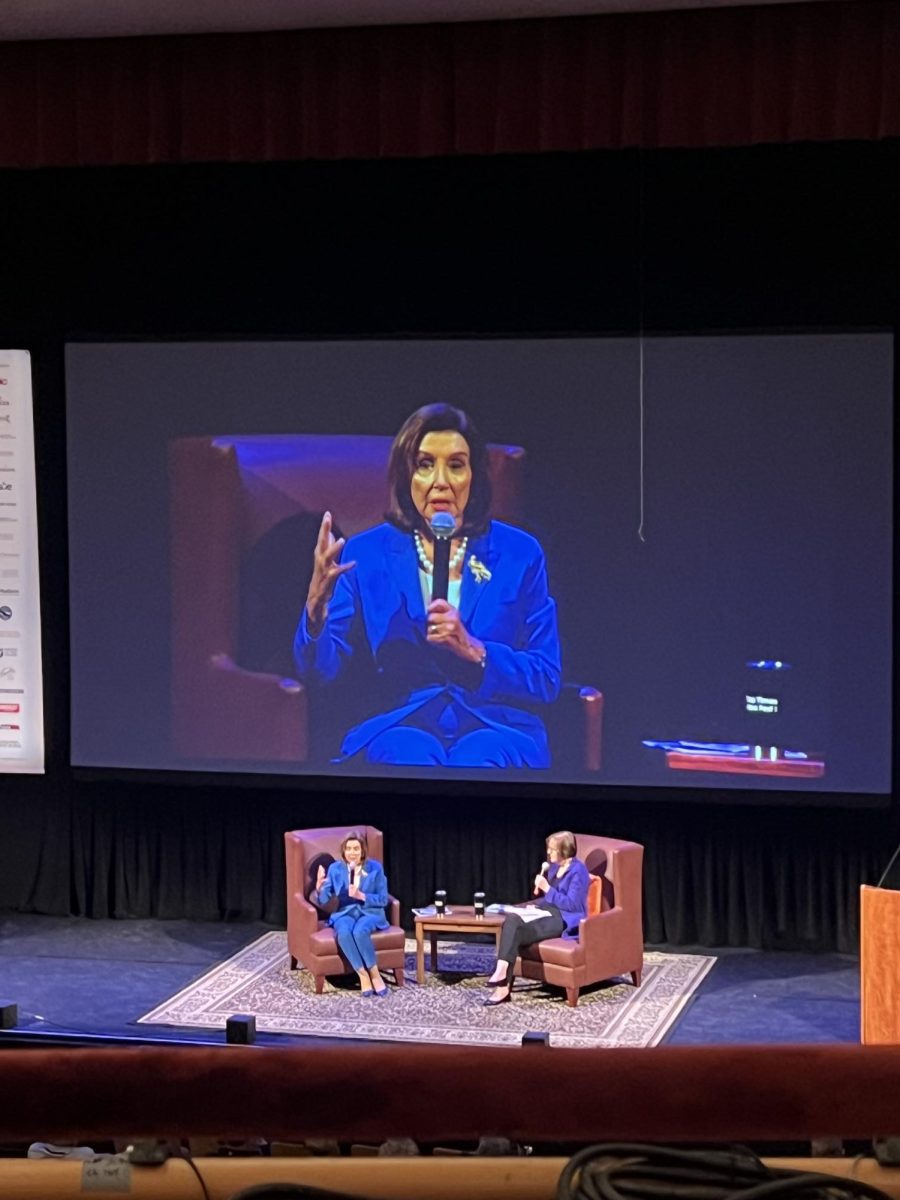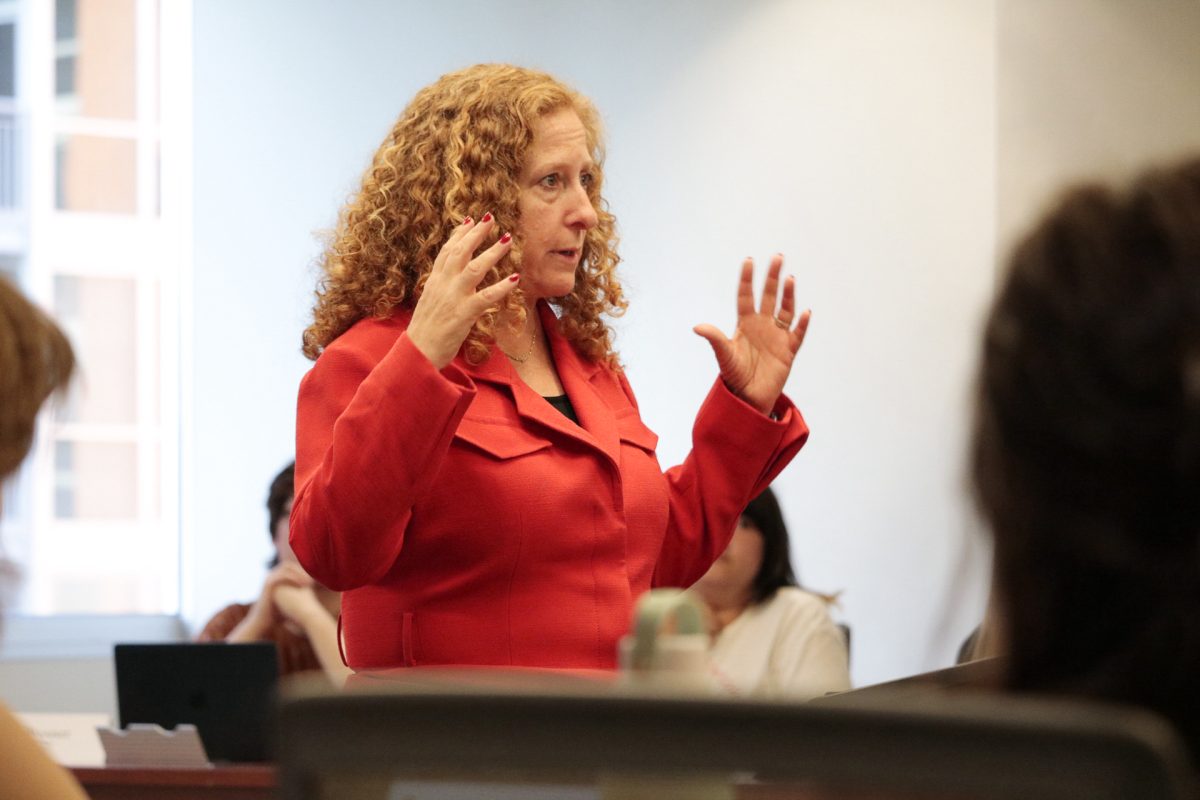Administrators and students from 14 different University of Wisconsin institutions delivered a final recommendation to UW System President Kevin Reilly Jan. 11 in regard to resident assistant (RA) policy. The recommendation is the result of the first of several roundtable discussions and comes in the wake of controversy surrounding an initial ban on allowing resident assistants to hold Bible studies in their residence hall rooms at UW-Eau Claire.
The recommendation reaffirms housing administrators' desires to create "a marketplace of ideas and free expression" while also protecting the rights of individuals and employees. In light of this, the "RA Working Group" presented five principles to Reilly for possible implementation in a systemwide policy.
Most of the principles follow in the tradition of earlier principles, which had already been well established throughout the UW System.
However, Principle IV, "The University, as employer, has the right to establish reasonable restrictions on RA activities as a condition of employment, due to the unique requirements of the RA position," and Principle V, "RAs should not use their position to inappropriately influence, pressure, or coerce student residents," already has some legislators and public officials irked.
Guiding UW
All 13 of the UW System's four-year institutions were represented during the RA Working Group sessions, as well as one member from UW Colleges, in early January. The 13 institutions included UW-Madison and UW-Eau Claire, whose RA policies have been targeted in recent months.
Administrators worked for several days composing a strong set of guidelines that could serve as the source of a new systemwide RA policy.
"They had a very open, frank and helpful conversation," said UW System Assistant Vice President for Academic Affairs and RA Working Group Chair Larry Rubin. "Everyone had a chance to participate, students included. We found from those discussions that we were really a lot more the same than different, and the difference was really a narrow issue."
In fact, while many have pointed to the apparent differences between RA policies at various UW institutions, administrators found little difference. All UW institutions allow RAs to hold Bible studies or any similar activities.
UW institutions only question where RAs are allowed to hold Bible studies.
"I think it took a while to get to that point. I agree the principle is just kind of the location of where [a meeting] should occur, not whether or not an [RA] should or should not lead," said UW-Madison Director of University Housing Paul Evans.
For instance, UW-Madison does not allow RAs to lead Bible studies in their own residence-hall buildings. They do allow those RAs to participate in — or even to lead — Bible studies in another residence-hall building. Similarly, UW-Whitewater does not allow RAs to hold any meetings, whether Bible-study or other activities, within their residence-hall rooms for safety reasons, but does allow it in basements.
In addition, the RA Working Group realized the importance of protecting the individual rights of RAs.
UW-Stevens Point Vice Chancellor for Student Affairs Bob Tomlinson, who served as an RA in the '60s, said the process of creating guidelines has been helpful in affirming the value of what RAs do for their respective campuses.
"I've always had a strong belief that these are sometimes underappreciated students," Tomlinson said. "You have no privacy, you're a 19- or 20-year-old student and you want to do all the things other students are doing."
A wasted effort?
However, disdain has already been expressed over the RA Working Group's set of guidelines for the UW System.
Though U.S. Rep. and gubernatorial candidate Mark Green, R-Wis., said in a Jan. 13 letter to Reilly he was glad that the RA Working Group did not reaffirm a ban on Bible studies at UW-Eau Claire, he was "extremely disappointed" that it did not guarantee RAs their constitutional rights to Bible studies.
"Any policy that doesn't specifically affirm the right of RAs to hold private, non-mandatory Bible studies in their room is unacceptable and I urge you to reject it," Green said in the letter. "The First Amendment is quite clear on this issue and I am having trouble understanding how a group of educated people can have such a difficult time grasping the religious freedom our Constitution provides."
Green was particularly troubled by the RA Working Group's right to establish "reasonable restrictions" on RA activities.
Green feared such a statement would give UW institutions the right to religiously oppress RAs, as he claims it did at UWEC.
However, Evans said drawing a clear line between allowing and not allowing RAs to hold Bible studies was not so easy.
"Whenever you try to draw a line, you're automatically saying something is OK and something is not OK, and I don't think if we took a random group of people that they would all agree where [we should draw the line]," Evans said. "We don't believe you can. Why not just limit that activity in [specific] locations if you don't have to draw the line."
The Philadelphia-based Foundation for Individual Rights in Education also agreed the RA Working Group's set of guidelines did not meet constitutional standards.
"The report does nothing to advance understanding of the issue or to set out a uniform policy," FIRE Program Manager Robert Shibley said in an e-mail. "In fact, it recommends leaving the unacceptable status quo on RA-led Bible studies firmly in place. Considering that the point of the report was to recommend a uniform policy for the UW System, it appears to have been a wasted effort."
State Rep. Scott Suder, R-Abbotsford, said he thought UW had to completely remove itself from the "absurd" RA policy.
"If RAs want to lead or organize Christian Bible study, as long it is not conflictive with their RA duties, they should be able to do it," Suder said. "To say that RAs can be involved in Bible study in one part of the campus but not in another, the UW really needs to get its act together."
How it started, when it will end
Dissent and controversy surrounding UW policies allowing campuses to prevent RAs from holding Bible studies surfaced in early November after the discovery that UWEC had banned its RAs from holding Bible studies in their rooms.
Lance Steiger, a UWEC student and RA, had brought this fact to FIRE, who then made public the contentious RA policy.
The situation became more complicated after legislators, angered over the alleged unconstitutionality of the policy, began speaking out against the UW System and UWEC for allowing such a policy to exist.
Soon thereafter, it was revealed UWEC had based some of its policies on those originally created at UW-Madison.
Green and others began trading letters with Reilly. Reilly, in turn, asked Wisconsin Attorney General Peg Lautenschlager Nov. 15 for her opinion on the Bible-studies case. A similar letter was delivered one day later by 25 Republican legislators. However, Lautenschlager refused to give an opinion, since providing legal advice could leave the AG unable to defend the UW System or state in the case of a lawsuit, which actually came about when Steiger filed a lawsuit against the Board of Regents in late November.
On Nov. 30, UWEC temporarily suspended banning RAs from leading Bible studies in their residence-hall rooms in order to gather more information on the issue.












